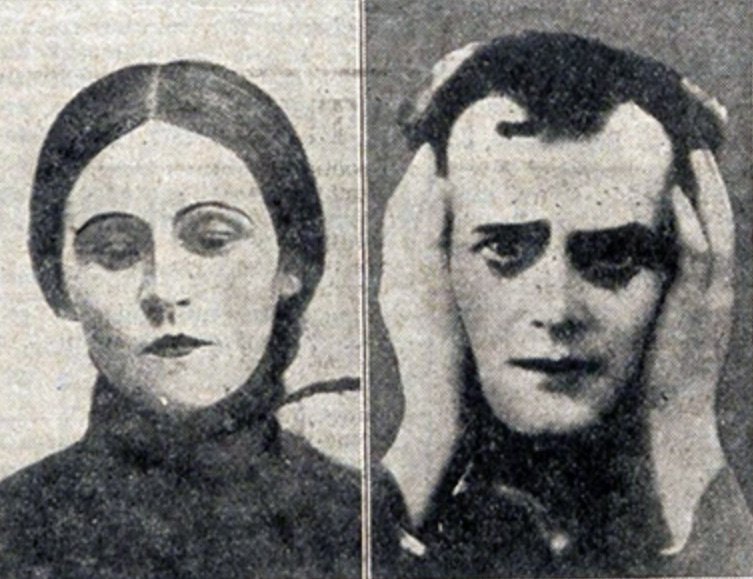The Dybbuk in the Cemetery
LAWeekly Sept 12-18, 2003
A Considerable Town
The Dybbuk in the Cemetery
[a piece I wrote some time ago, and just retrieved from the archives for a friend. Shabbat shalom.]
Venturing out at dusk like bats from our cave, we arrived at Hollywood Forever Cemetery — the streets of the necropolis lit with tiki torches — and made our way past the phallic Otis monument, the diminutive Mel Blanc tombstone, the polished black granite slabs etched with the photos of recently deceased Russian immigrants. By the time we reached the cemetery’s southeastern corner adjacent to Paramount Studios, several hundred people were already picnicking on the only open grassy space not occupied by graves. DJ Brandon Hall set the pulse with a mix of melancholy but celebratory klezmer, hip-hop and down-tempo: Pharaoh’s Daughter segued into Blood Oranges, Davka into Billie Holiday into Mickey Katz, source of the memorable line, “She even cha-chas when she shlafts.” And then came The Dybbuk, the 1937 Polish/Yiddish film noted for its “Hasidic Gothic” visual style, projected onto the mausoleum wall.
The screening is the brainchild of Tali Pressman, the 23-year-old director of a new organization, Avada, whose mission, under the umbrella of Yiddishkayt L.A., is to bring people under 35 to a new appreciation of Yiddish language and culture. “Yiddish can be a hard sell, especially to my generation,” says Pressman, who has, with tonight’s program, conjured a canny juxtaposition of Old World and New, mystery and schmaltz, love-in and summer camp.
Based on the classic 1919 play by S. Ansky and set in an Eastern European shtetl in the late 19th century, Der Dibek is a tale of disconsolate spirits, frustrated passions and untimely deaths. Poor Leah, the young bride-to-be, is possessed by the spirit of her dead lover, the young scholar Khonen, who’s been dabbling in the forbidden texts of the Kabbalah. The film’s subtitle is Between Two Worlds. Ansky, a prominent socialist, Yiddish and Russian journalist and avid folklorist, was himself an illustration of that in-betweenness: comfortable neither in Russian secular society nor among traditional religious Jews.
I also was mediating two worlds: the ghostly images projected on the cemetery wall and the presence of my dead parents, grandparents and cousins in a vault in Beth Olam, Hollywood Forever’s adjacent Jewish section. In the film, Leah goes to the cemetery to invite her dead mother to her wedding. In reality, my own dead mother is buried in this cemetery. A reason to drink more red wine.
Meanwhile, with a red-glowing Mars above flickering black-and-white images of Polish rabbis performing exorcisms, those around me were experiencing their own epiphanies and discomforts. A friend kvetched about the film’s stereotypical and kitschy depiction of shtetl Jews. Another friend said that the people assembled on the cemetery lawn reminded her of everyone she’d ever known in her life who had died. A third, a refugee from the NYC blackout, gleefully noted how she couldn’t wait to tell her Brooklyn friends how she spent the night sitting in the dark in a cemetery in the middle of Hollywood. A fourth muttered, “Hey, the goyim have a duck pond. That’s not fair!”
Despite creeping damp and inevitable leg cramps from sitting on the ground for two hours, an informal solidarity built up among those gathered. Collectively witnessing the gradual shift of light from afternoon to evening was a tribal rite, inherently calming. Hearing the actors on the screen speak in Yiddish was disorienting to some, comforting to others, poignant to many.
When the movie ended, no lights came back on. It was dark. Real dark. A partial moon hung overhead. Ducks quacked. Mexican fan palms loomed as eccentric silhouettes. Car headlights cast intermittent shadows, transforming pedestrians into apparitions, illuminating the inscribed names of the dead.
After attending too many family funerals, the last thing I have ever wanted was to join my ganse mishpocheh for eternity in the middle of Hollywood behind a strip mall. Mellowed by red wine and klezmer, however, surrounded by visiting peaceful souls, listening to my grandparents’ mother tongue, and with the prospect of more nighttime screenings, I began to seriously consider the possibility.
